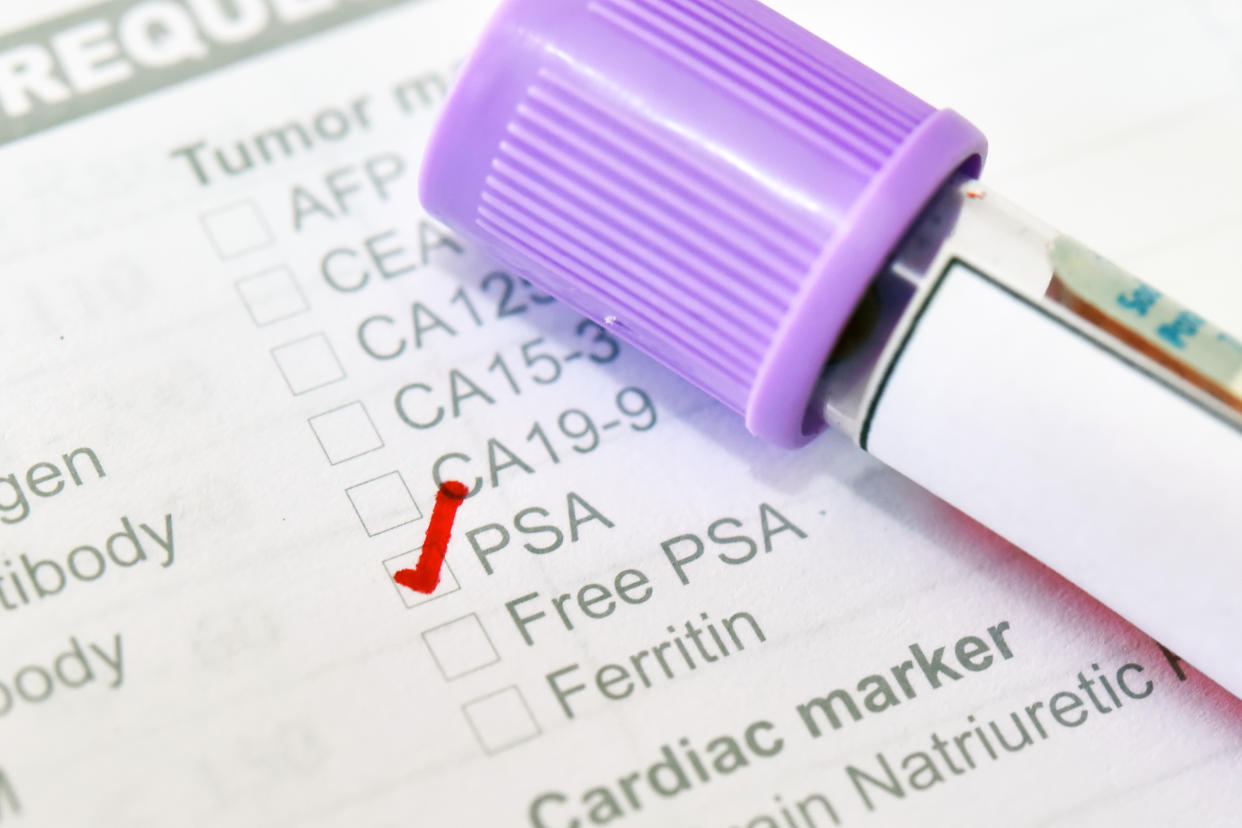When you should get checked for certain cancer types

With Rishi Sunak revealing King Charles' cancer was caught early, we're reminded of the importance of prompt intervention.
"All our thoughts are with him and his family. Thankfully, this has been caught early," the prime minister told BBC Radio 5 Live, adding he hopes the King "gets the treatment that he needs and makes a full recovery".
The type of cancer King Charles has been diagnosed with has not been disclosed. Buckingham Palace said "a form of cancer" was diagnosed after "a separate issue of concern" was found during his recent treatment for an enlarged prostate.
In a statement, the Palace said: "The King is grateful to his medical team for their swift intervention, which was made possible thanks to his recent hospital procedure."
The monarch began "regular treatments" on Monday and "remains wholly positive about his treatment and looks forward to full public duty as soon as possible".
Other than being lucky enough to have cancer detected by chance, what other measures can we do to ensure a prompt diagnosis? "There are certain cancers that are screened for as part of NHS screening. These include cervical, breast and bowel cancer. It’s important to respond to any invites or reminders sent to you so that you keep up to date with your screening schedule," Dr Babak Ashrafi of Superdrug Online Doctor tells Yahoo UK.
"Other cancers such as prostate cancer don’t fit into a national programme. Knowing when to get checked for specific types of cancer is crucial because early detection can significantly improve treatment outcomes and increase the chances of survival."
Here's a run through of some of the cancer types that do and don't offer screenings, and when to get checked.
Prostate cancer

"Generally, men should consider screening with a prostate-specific antigen (PSA) blood test and digital rectal exam starting at age 50," says Ashrafi.
Instead of a national screening programme, there is an 'informed choice programme' called prostate cancer risk management, for healthy men aged 50 and over who ask their GP about the pros and cons of prostate PSA.
The PSA test can find aggressive prostate cancer that needs treatment, but it can also find slow-growing cancer that may never cause symptoms or shorten life.
"Treating prostate cancer in its early stages can be beneficial in some cases, but the side effects of the various treatments are potentially so serious that men may choose to delay treatment until it's absolutely necessary," the NHS highlights.
Testicular and penile cancer
There is no national screening programme for testicular cancer in the UK. Instead, it's a good idea to check yourself for signs of testicular cancer, which tends to mostly affect men between 15 and 49.
There is also no national screening programme for penile cancer. Talk to your doctor if you think you are at increased risk or worried about symptoms. Penile cancer is more in common in men aged 50 and over.
Bowel cancer

"Screening for colorectal cancer typically begins at age 50 for average-risk individuals. This may involve tests such as a colonoscopy, stool-based tests, or flexible sigmoidoscopy," says Ashrafi.
While bowel cancer screening was typically available to everyone aged 60 to 74, it is now gradually expanding to those between 50 and 59.
If eligible, you will be sent a poo sample home test kit every two years.
Lung cancer
If you're aged between 55 and 74, you may be offered an NHS lung health check. The targeted Lung Health Check programme aims to find lung cancer – which causes more deaths in the uk than any other cancer type – early, sometimes before you have symptoms.
Currently, lung health checks are only available in some parts of England, but will be available everywhere by 2029.
Skin cancer
There is no national screening programme for non melanoma skin cancer in the UK, because it most commonly develops in areas of skin exposed to the skin, making it easier to spot early.
Melanoma, less common but usually more series, also doesn't have a national screening programme. But talk to your GP if you think you are at a higher than average risk of melanoma, which includes having had it in the past, a family history, many moles or an organ transplant. Your doctor can refer you to a skin specialist who can show you how to check your skin each month for abnormal moles.

Breast cancer
Anyone registered with a GP and female will be invited for NHS breast screening every three years between 50 and 71, via a letter in the post.
You'll get your first invite between 50 and 53 and then again every three years until 71. If you're a trans man, trans woman or are non-binary you may be invited automatically, or you may need to talk to your GP surgery or call the local breast screening service to ask for an appointment.
You may be eligible for breast screening before the age of 50 if you have a very high risk of developing breast cancer.
While you won't be automatically invited for breast screening after 71, you can still call your local breast screening service and ask for an appointment.
Ovarian cancer
There currently isn't a national screening programme for ovarian cancer, though research has been looking into tests including the CA125 blood test and transvaginal ultrasound.
Ovarian cancer most affects women over the age of 50, but anyone can get it who has ovaries.
Cervical cancer
"Women should start receiving regular Pap smears around the age of 25 to screen for cervical cancer. The frequency of screening may vary based on age and risk factors, such as previous abnormal Pap smear results or HPV infection," says Dr Ashrafi.
With any of these types of cancer, while screenings can be life-saving, if these aren't available, or even if you have just had one or one coming up, don't delay in speaking to your doctor about suspected cancer symptoms.
"The key thing is to see your GP if you develop any new symptoms that persist, or if you have a strong family history of any cancer. They can then advise you on when you may need tests to check your own health, and refer you when," Dr Ashrafi urges.
"As a general rule, any new, persistent symptoms such as unexplained weight loss, lumps or masses, changes in bowel or bladder habits, or unusual bleeding should prompt a visit to the doctor promptly, regardless of age or gender."
Watch:How to check your breasts for lumps
Read more about cancer signs and treatments:
Symptoms of UK’s most common cancers as MAFS star reveals diagnosis (Yahoo Life UK, 6-min read)
Breast cancer symptoms: 300,000 women to be offered drug to slash risk of the disease (Yahoo Life UK, 7-min read)
What is bowel cancer? Abby Cohen shares symptom that led to early diagnosis (Yahoo Life UK, 6-min read)


